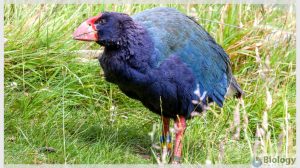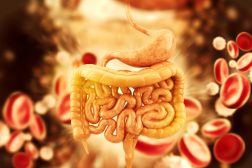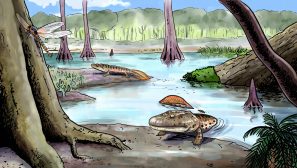Definition
noun, plural: proplastids
A small, colourless organelle that gives rise to a plastid (e.g. chloroplast, chromoplast, and leucoplast)
Supplement
A proplastid is an organelle found in the meristematic regions of the plant. It is colourless and small. It is from where plastids are derived. It is still undeveloped and may divide to produce more proplastids. As the cell containing proplastids mature, the proplastids transform and develop into plastids with specialized functions.
Plastids are organelles that come in different forms depending on their function. Plastids with chlorophyll (green pigment) are called chloroplasts. They give the plant parts the green colour. These plastids are involved in photosynthesis. Those that have other pigments are called chromoplasts. They are involved in producing and storing pigments, e.g. carotene, xanthophylls, etc. They abound in fruits, flowers, and roots. A plastid that lacks pigments is called leucoplast, and is involved mainly for storing food. A leucoplast may be an amyloplast that stores starch, an elaioplast that stores fat, or a proteinoplast that stores proteins. Tannosomes are also leucoplasts and are involved in the synthesis of tannins and polyphenols. Like mitochondria, plastids have their own DNA and ribosomes. Hence, they may be used in phylogenetic studies.
See also:
Dictionary > Proplastid
You will also like...

Plant Cells vs. Animal Cells
Plant cells have plastids essential in photosynthesis. They also have an additional layer called cell wall on their cell..

The Evolutionary Development of Multicellular Organisms
Multicellular organisms evolved. The first ones were likely in the form of sponges. Multicellularity led to the evolutio..

Neural Control Mechanisms
Neurons generate electric signals that they pass along to the other neurons or target tissues. In this tutorial, you wil..

Takahē (Porphyrio hochstetteri)
Meet the colorful takahē, an extremely rare flightless bird. Find out more about its unique features and why they matte..

Human Biology – Food and Digestion
This tutorial recognizes the importance of food as a source of energy that will fuel many biological processes. A good d..

Amphibians & Early Reptiles
Obtaining air outside an aquatic environment required species to acquire suitable adaptations, and this was the case of ..

